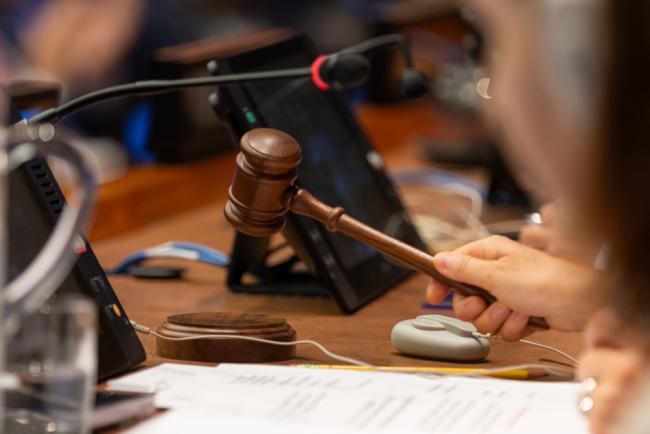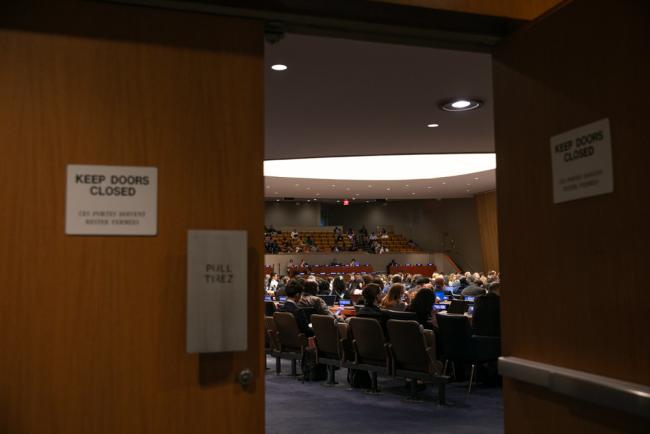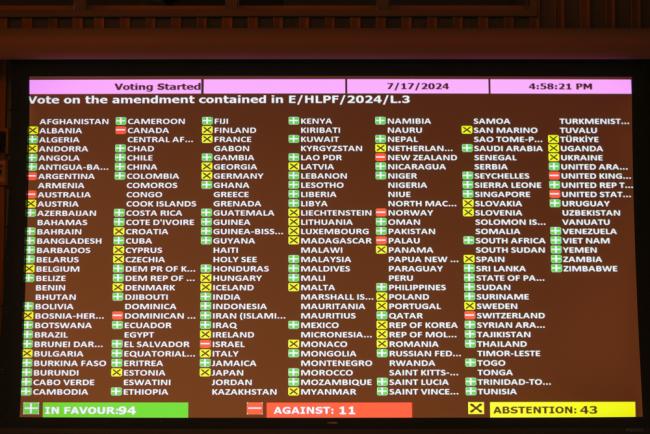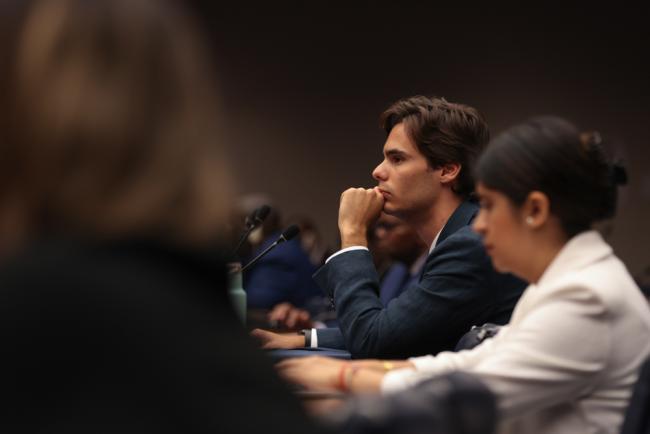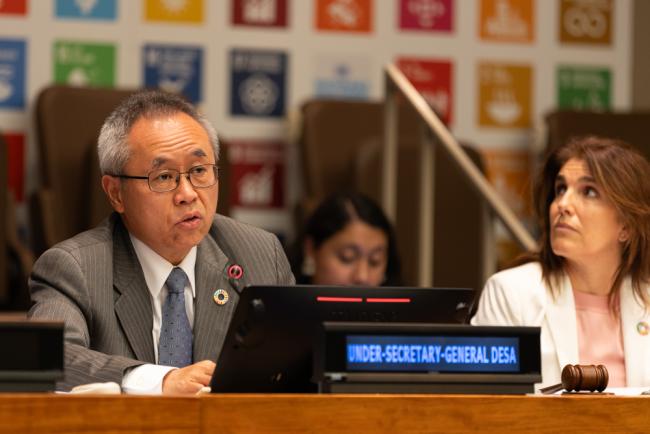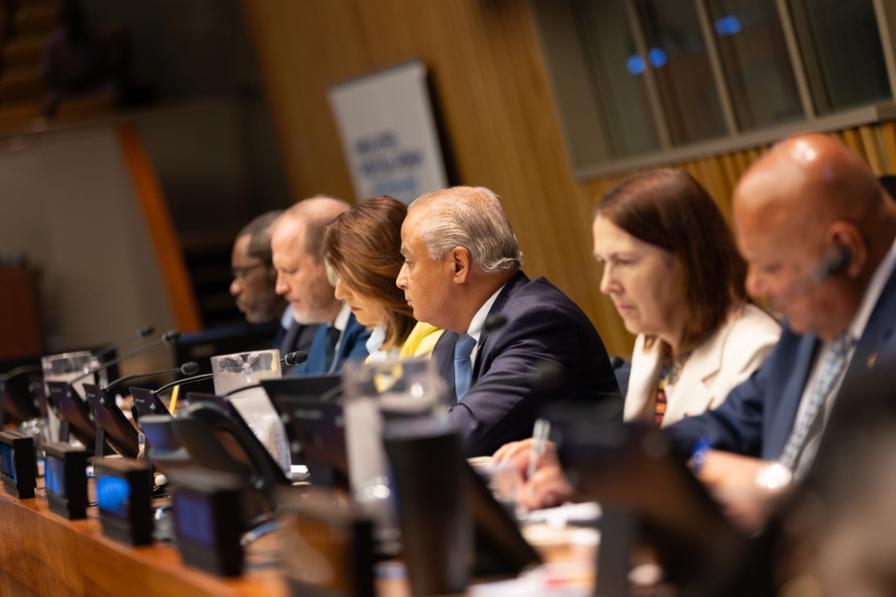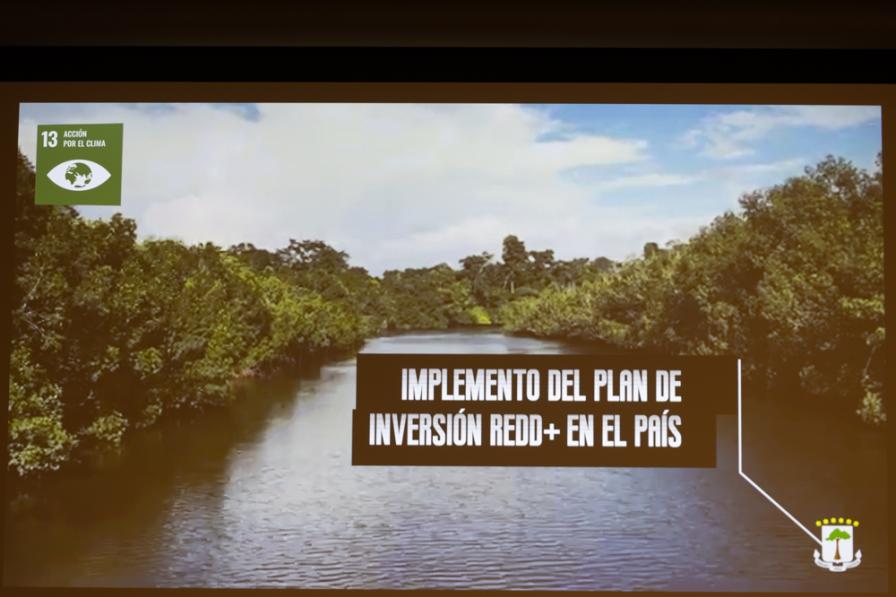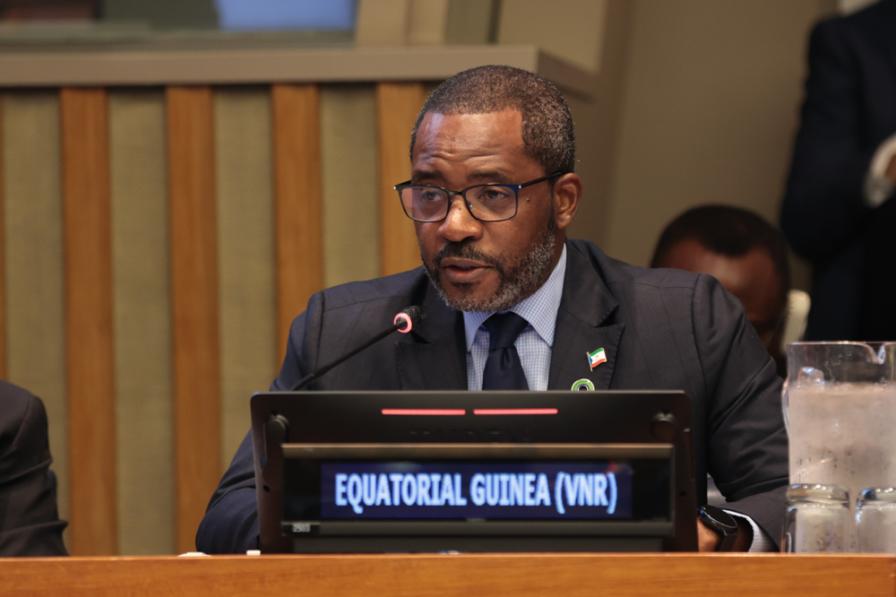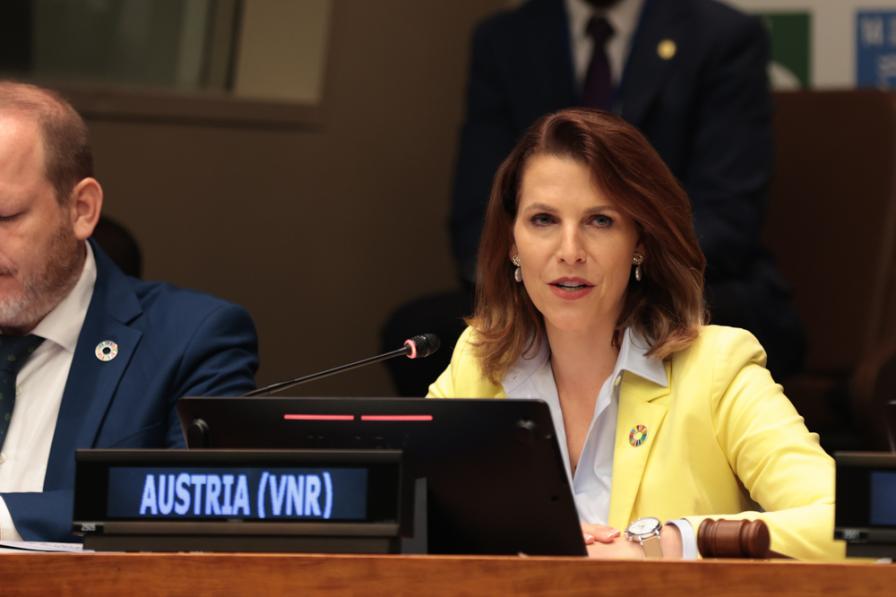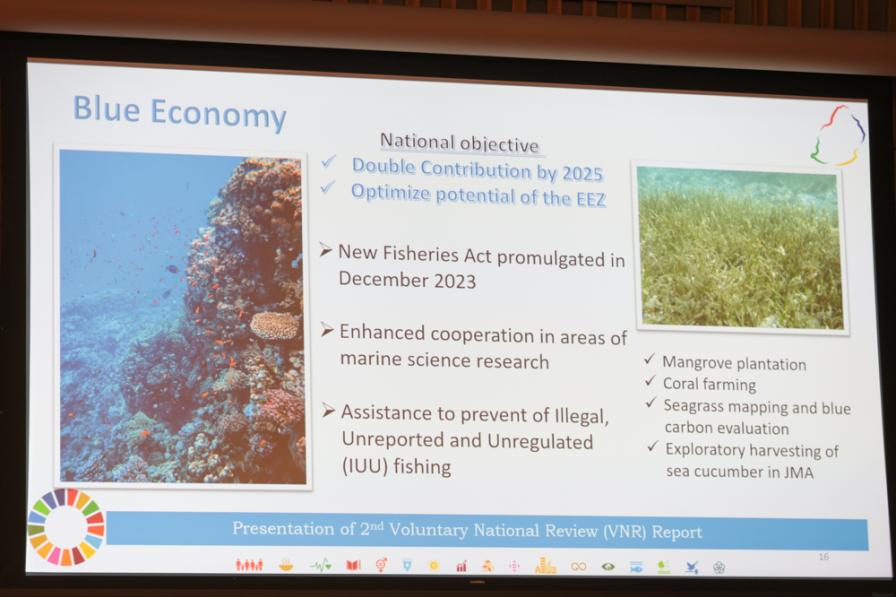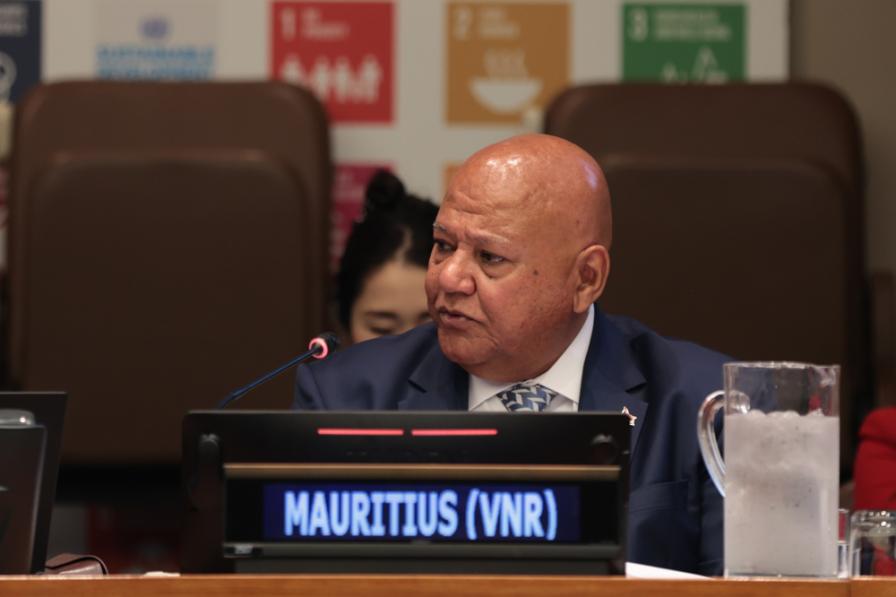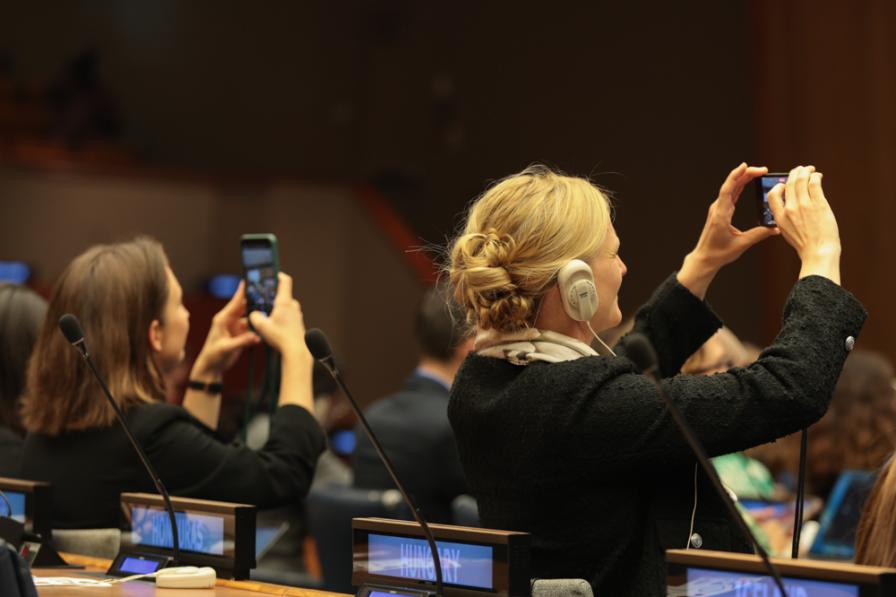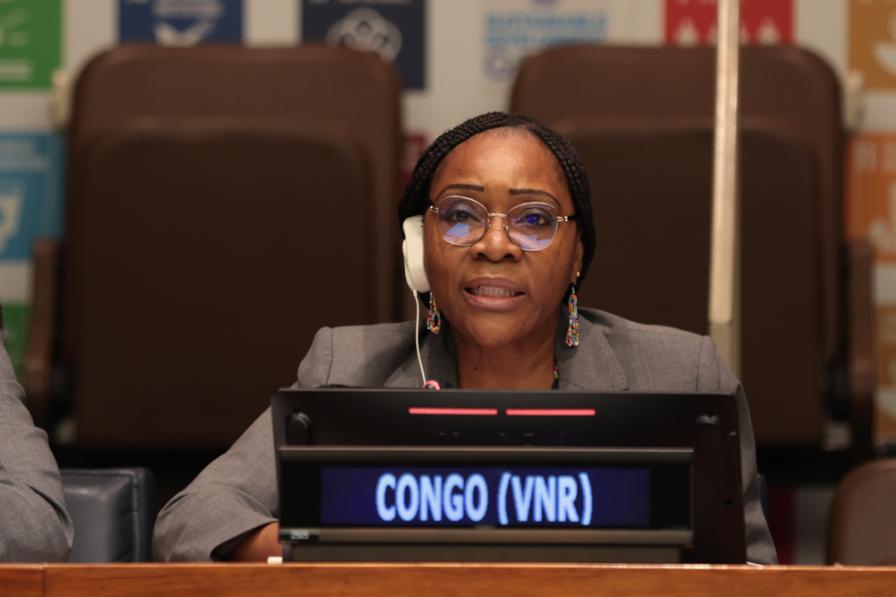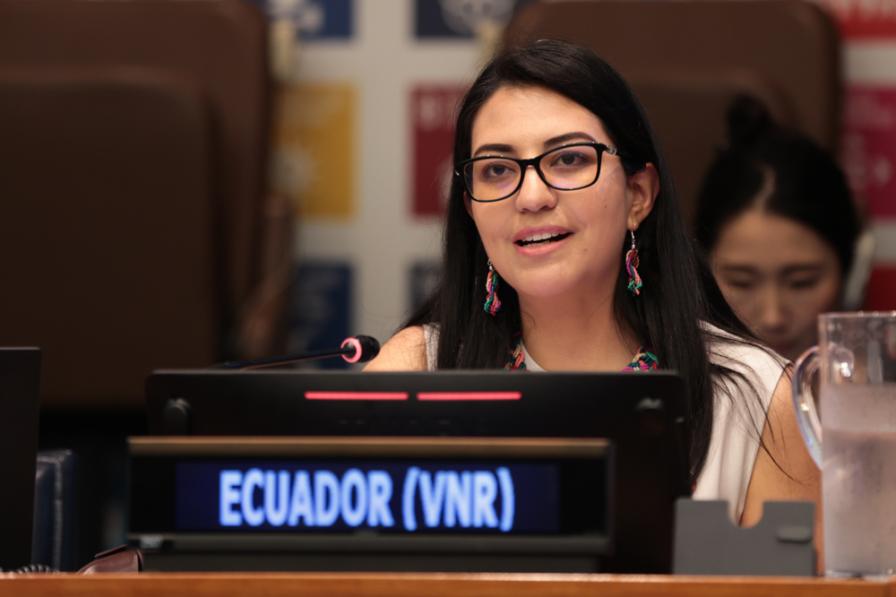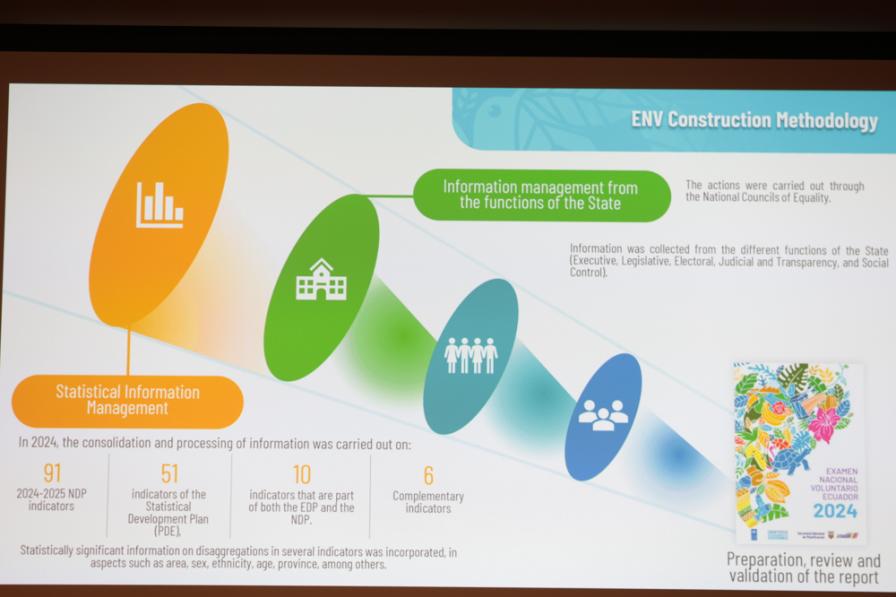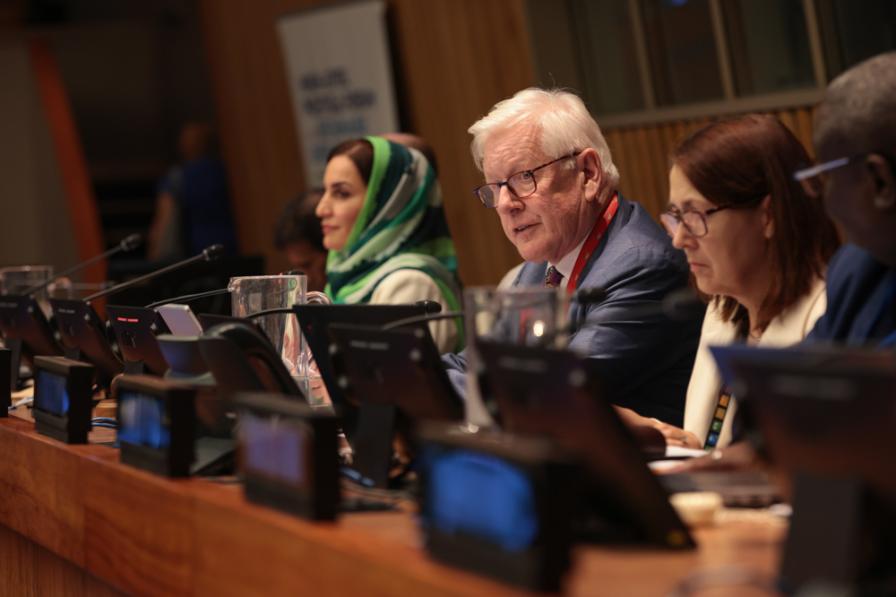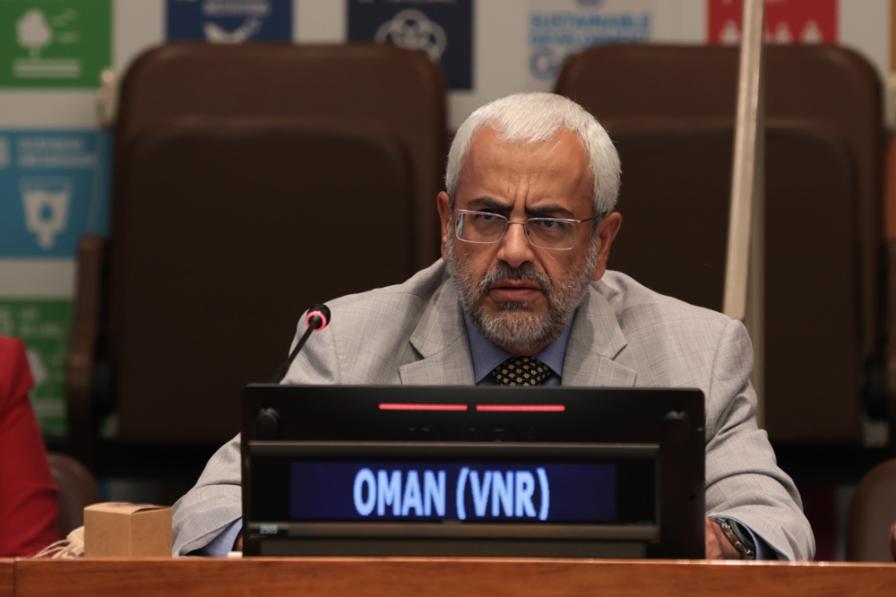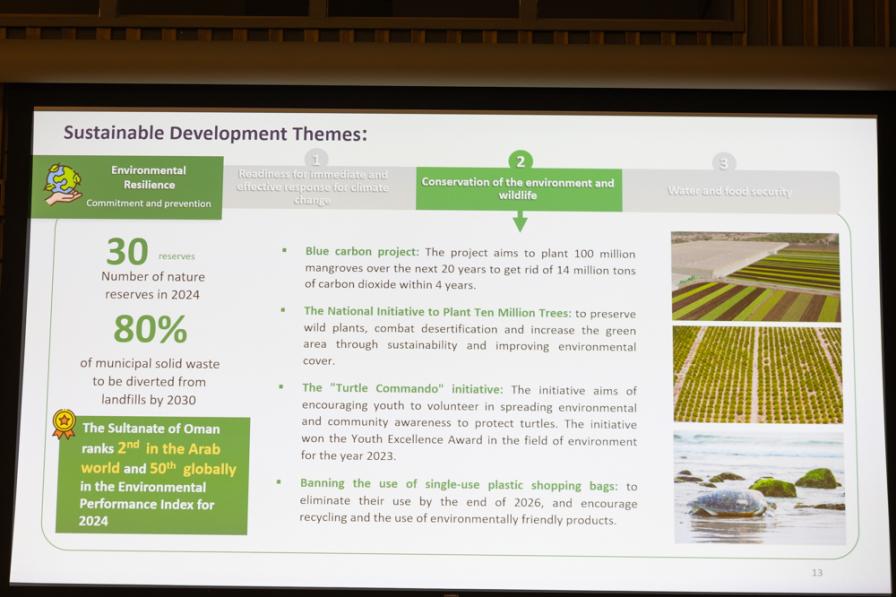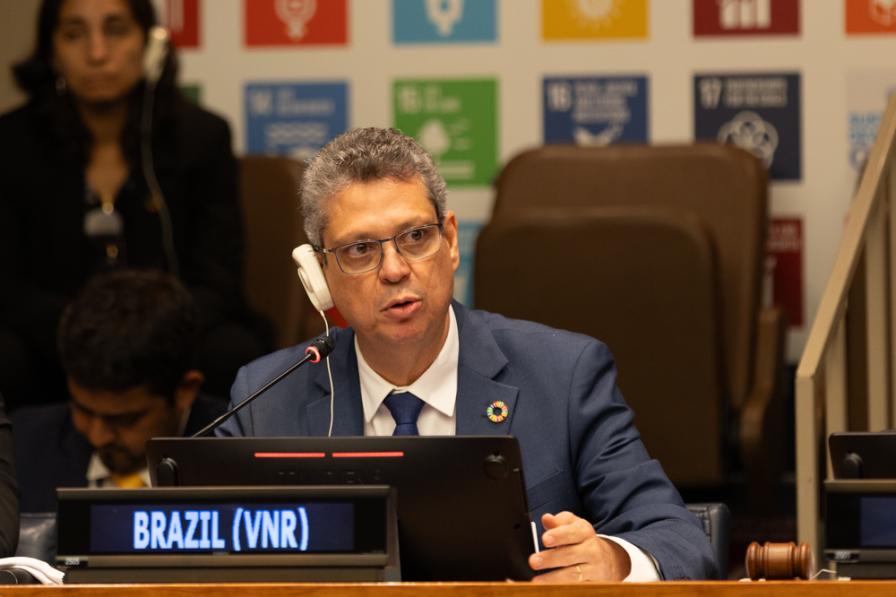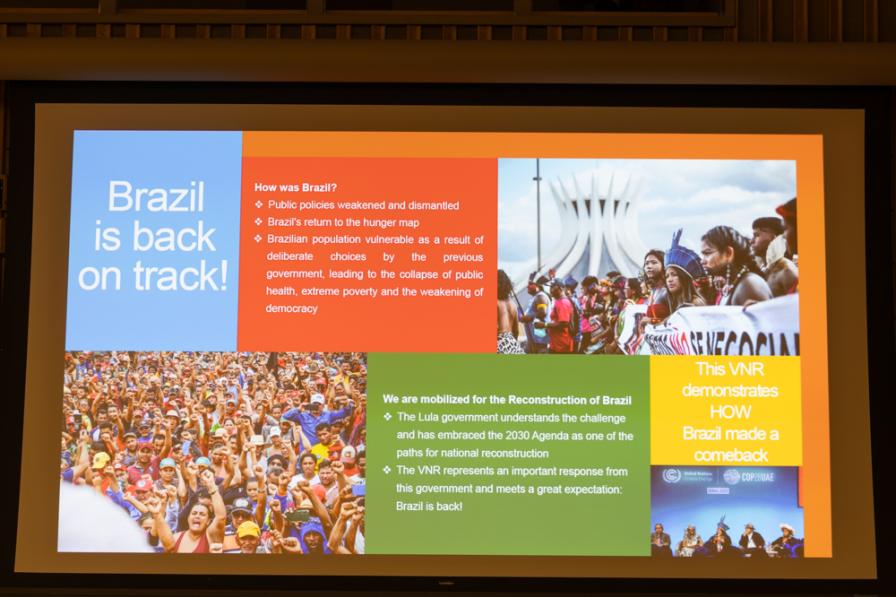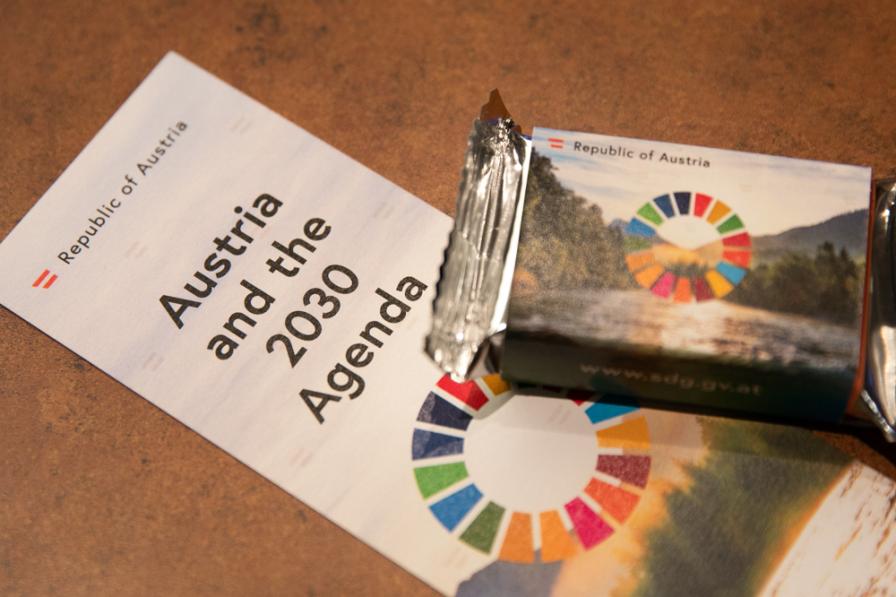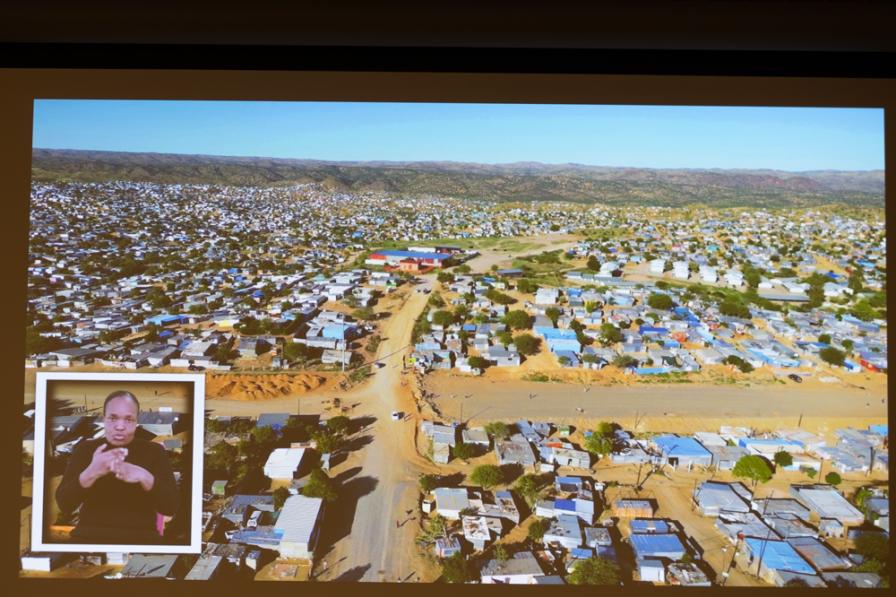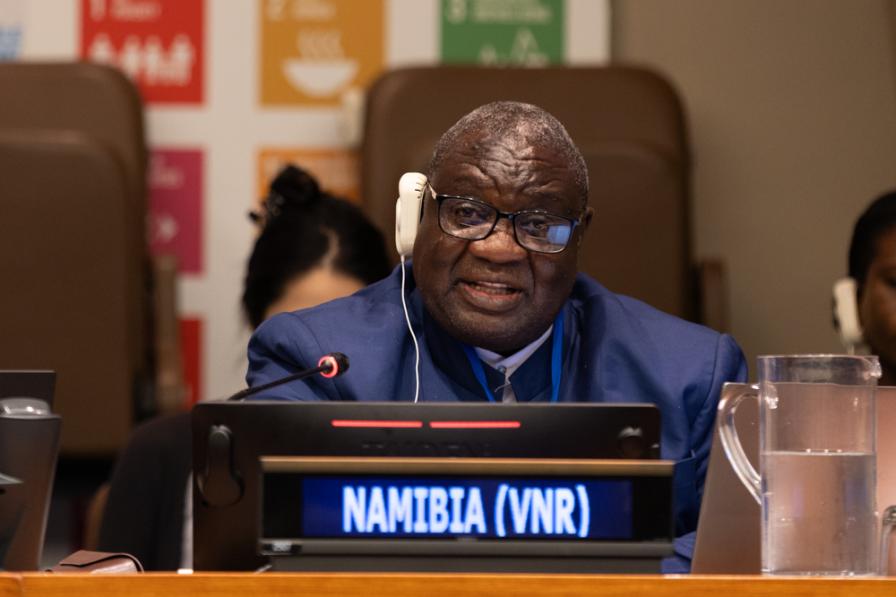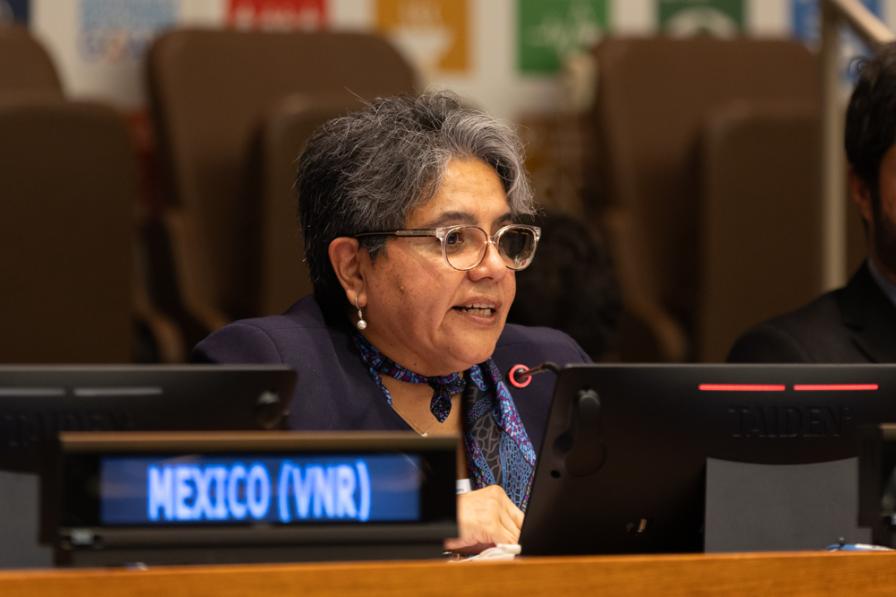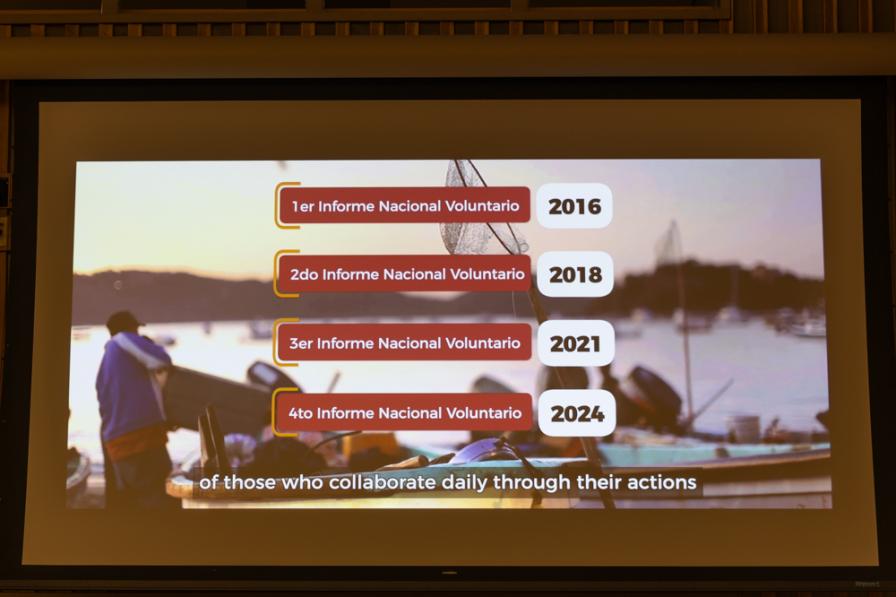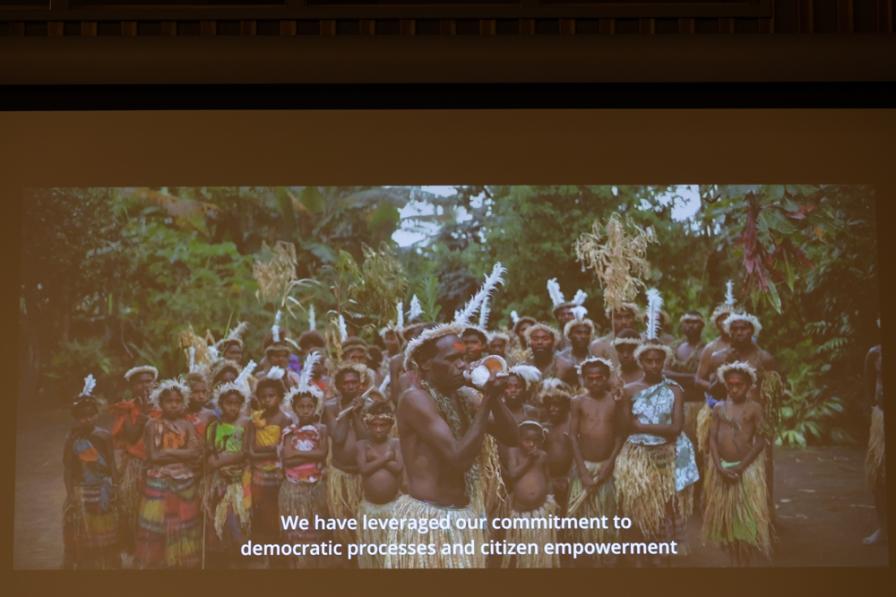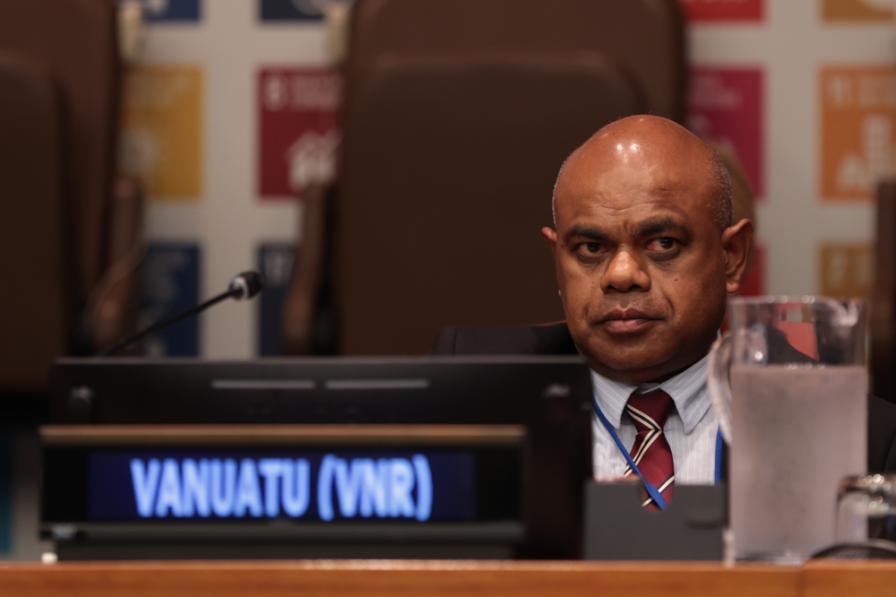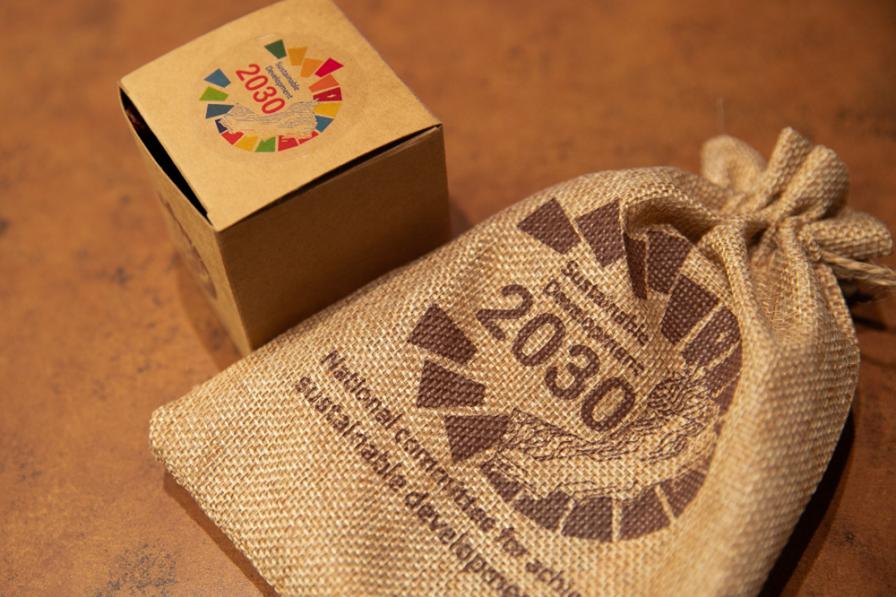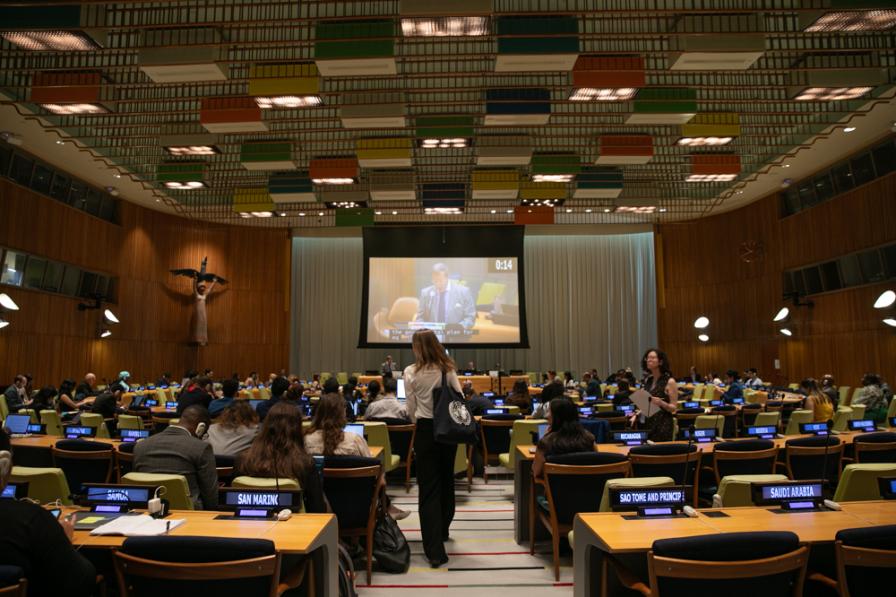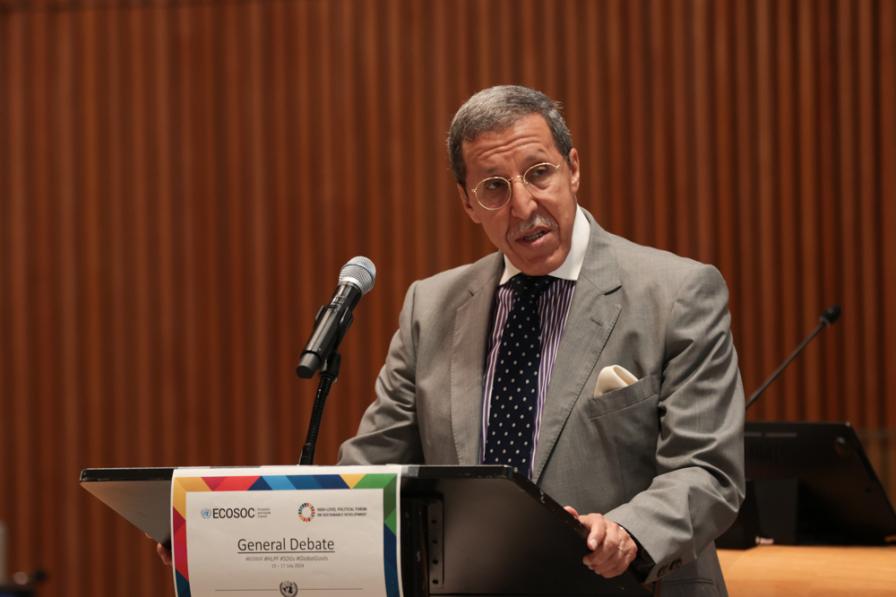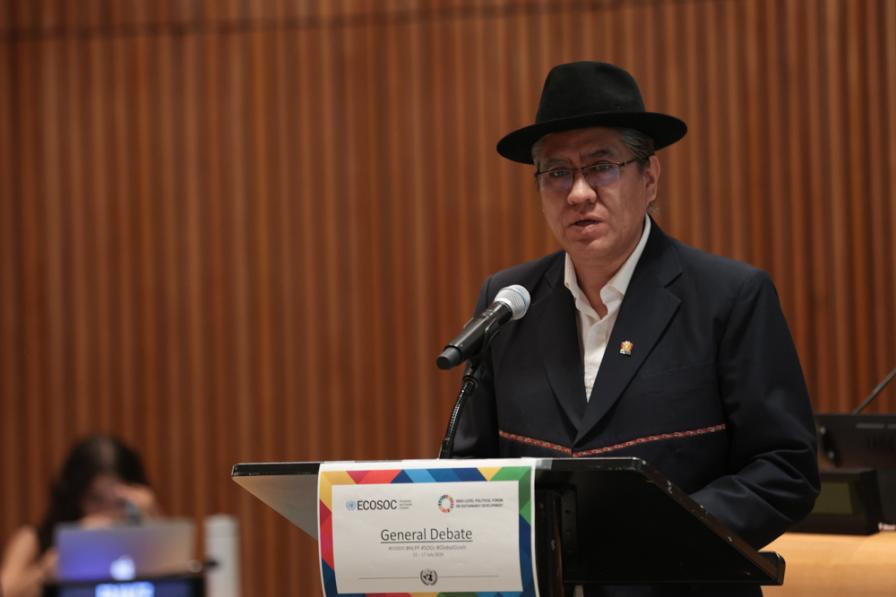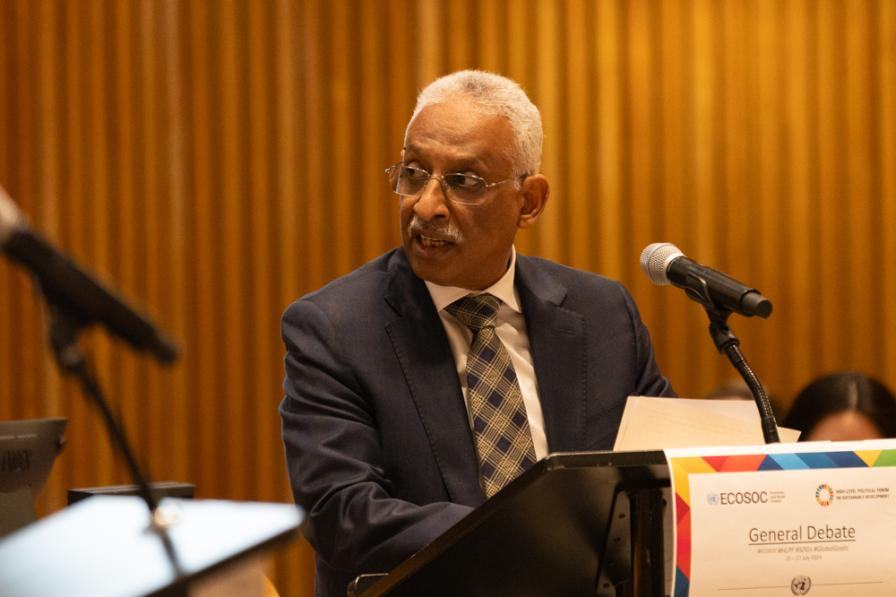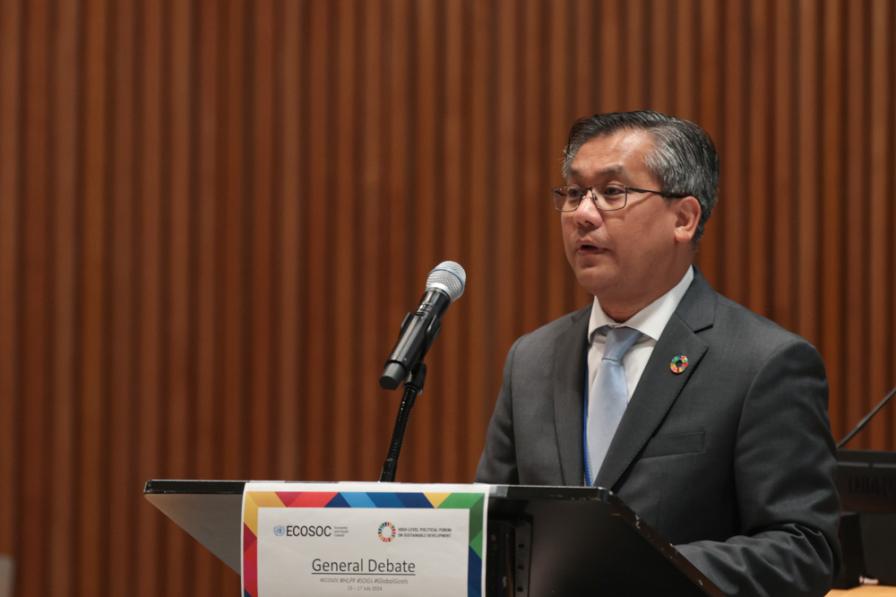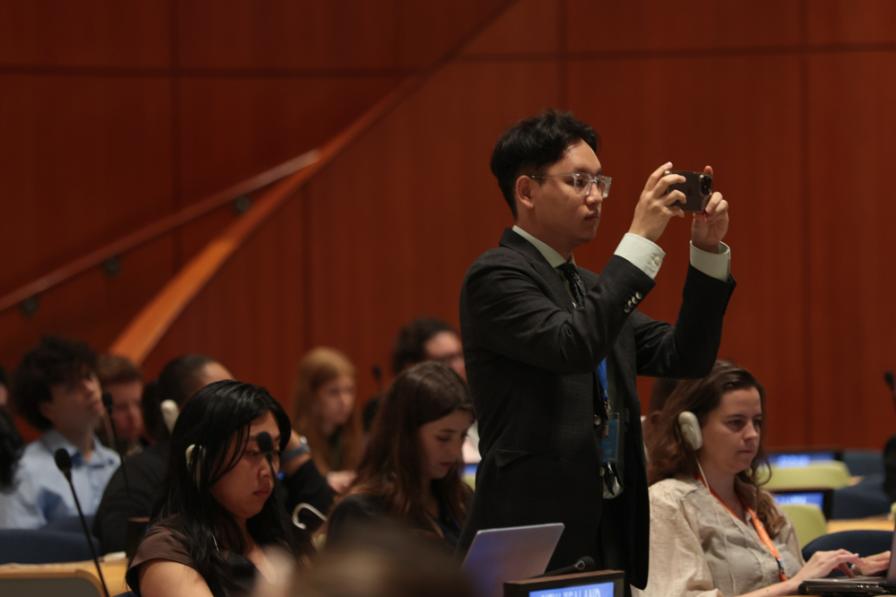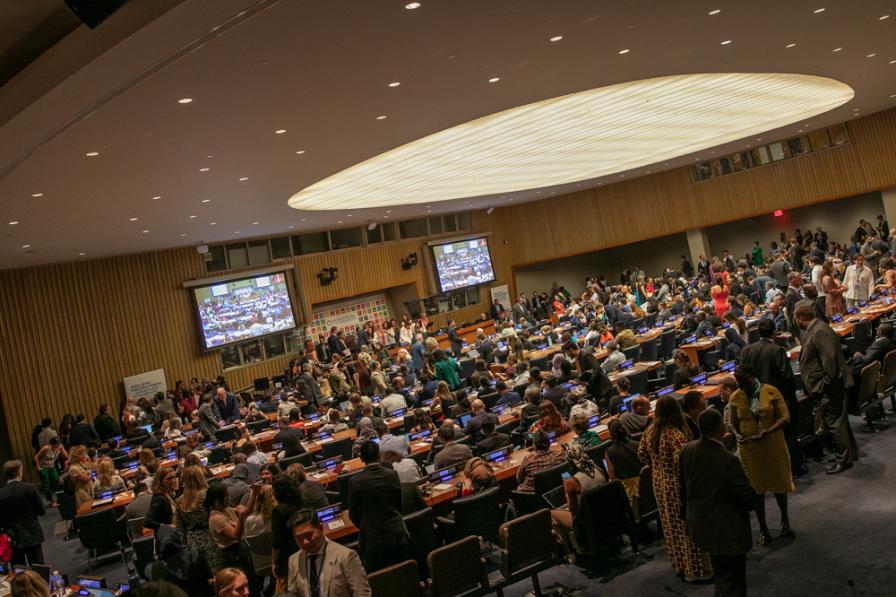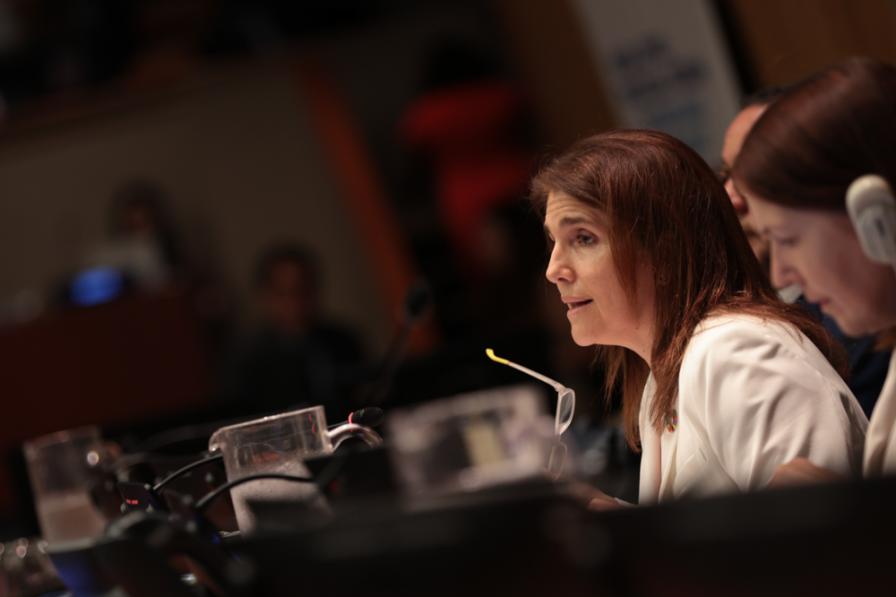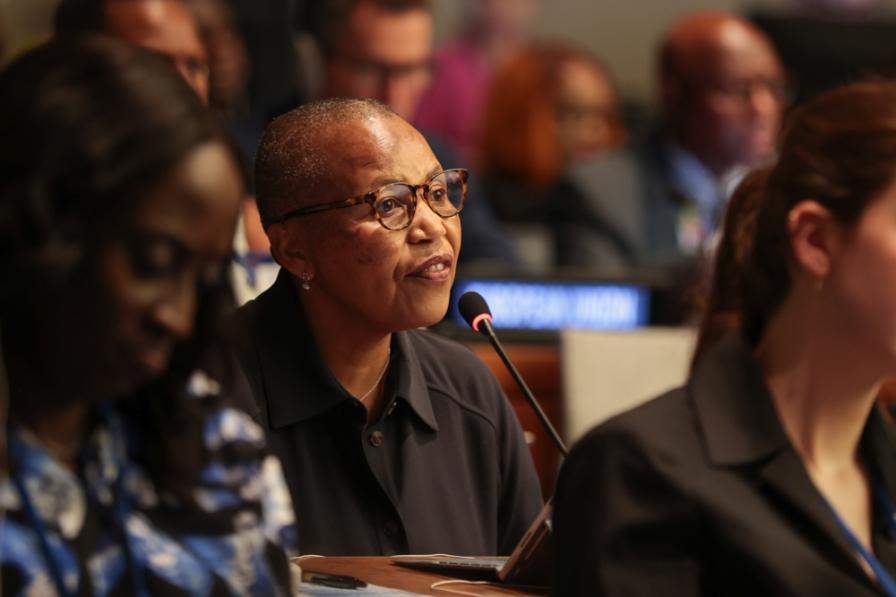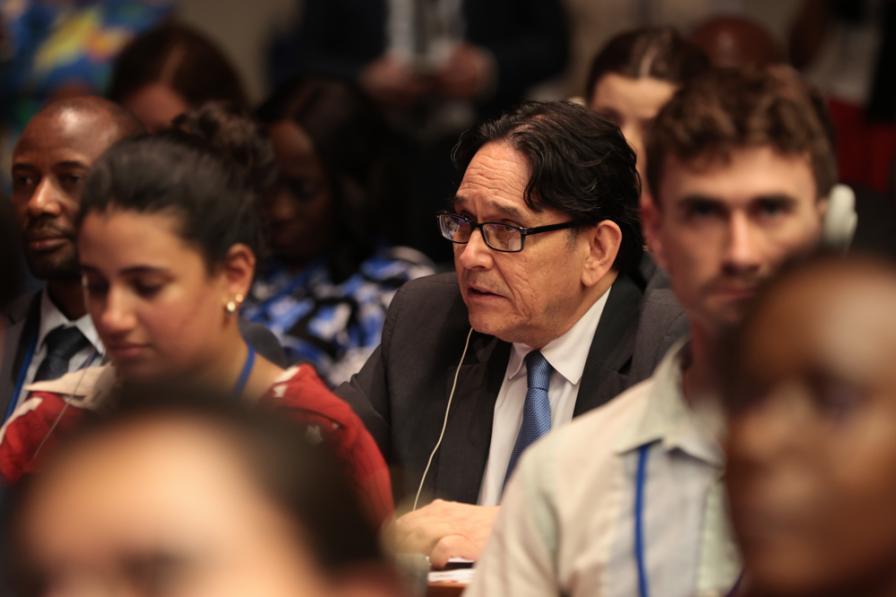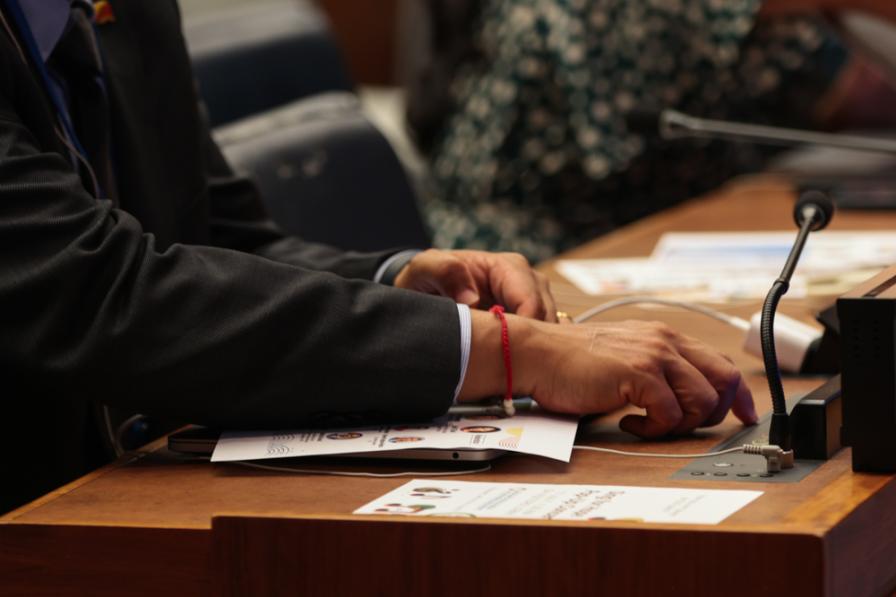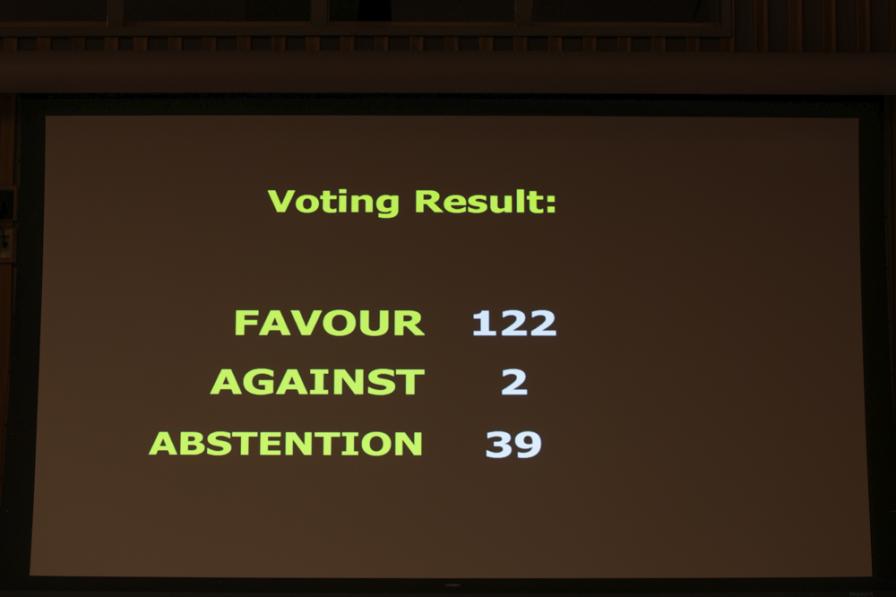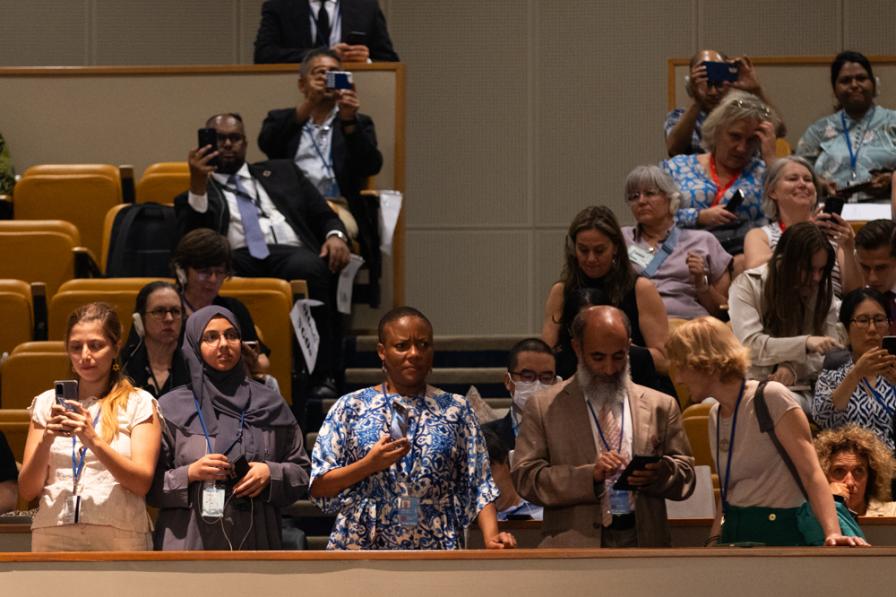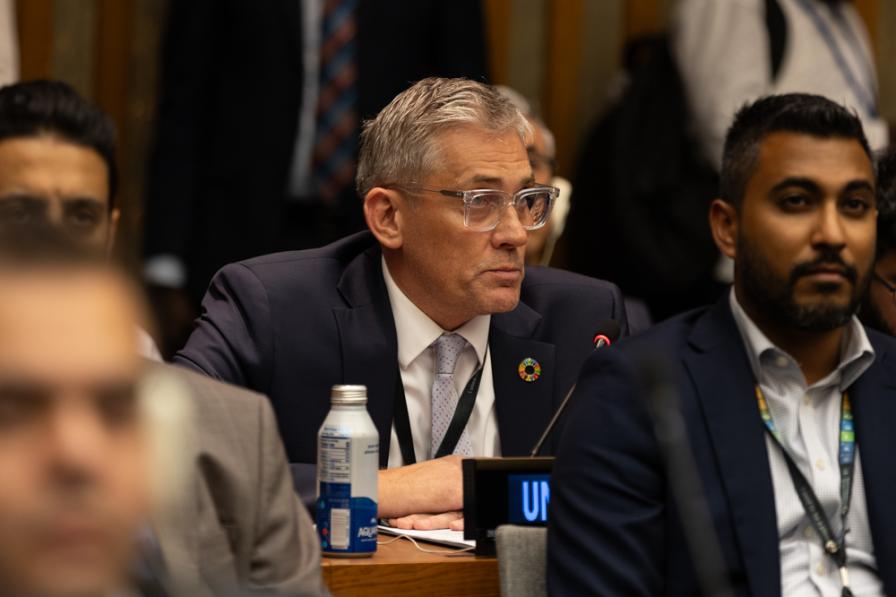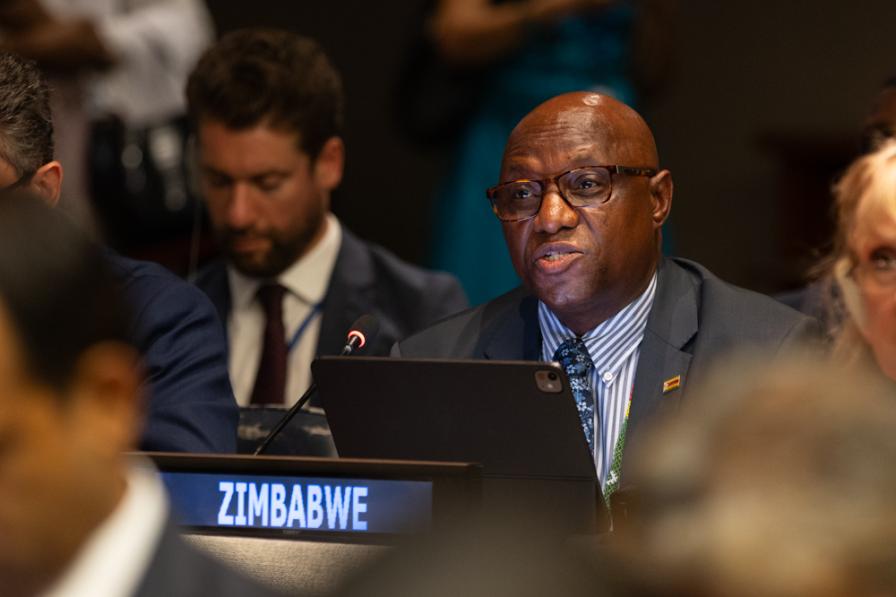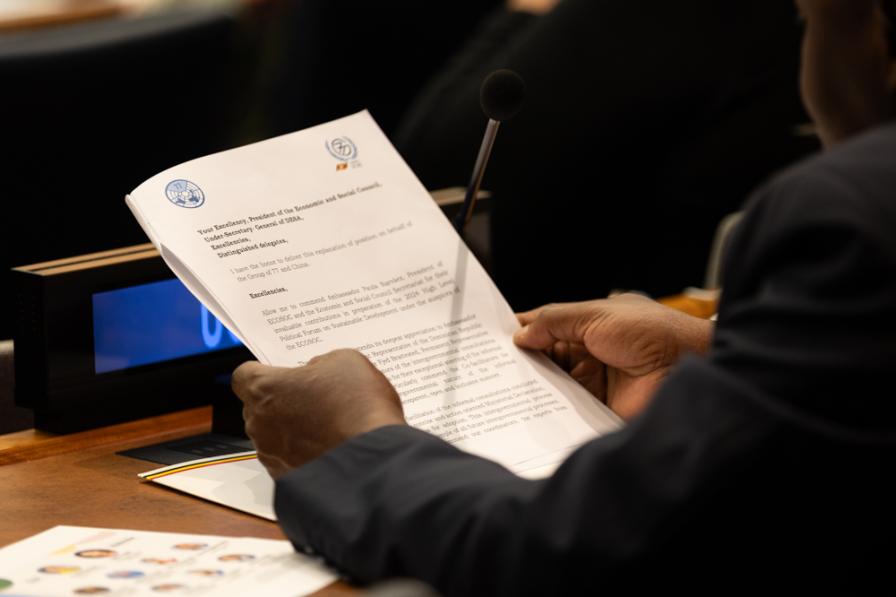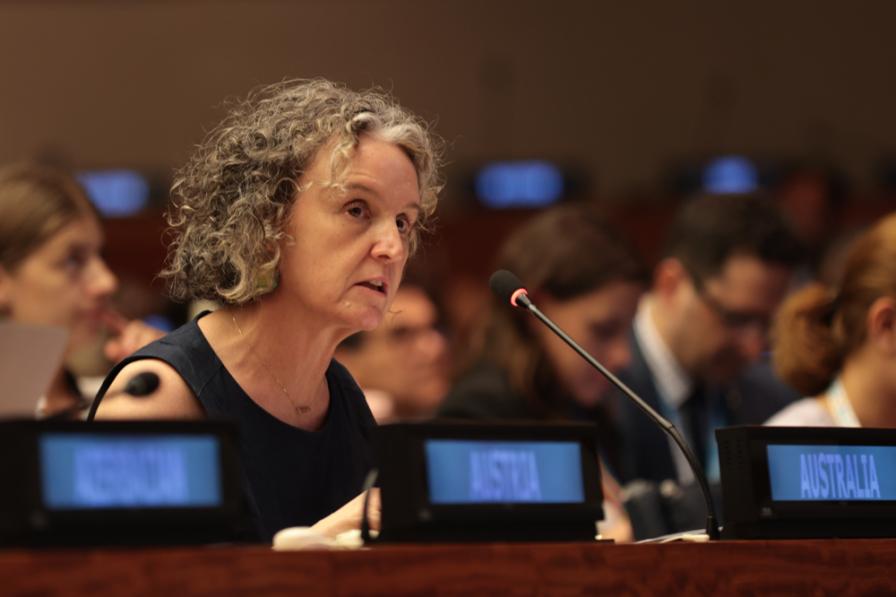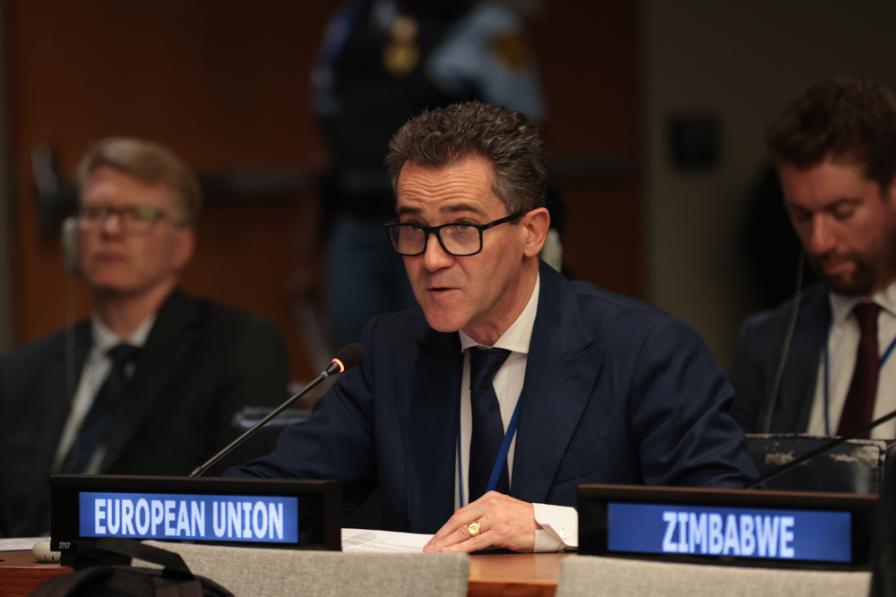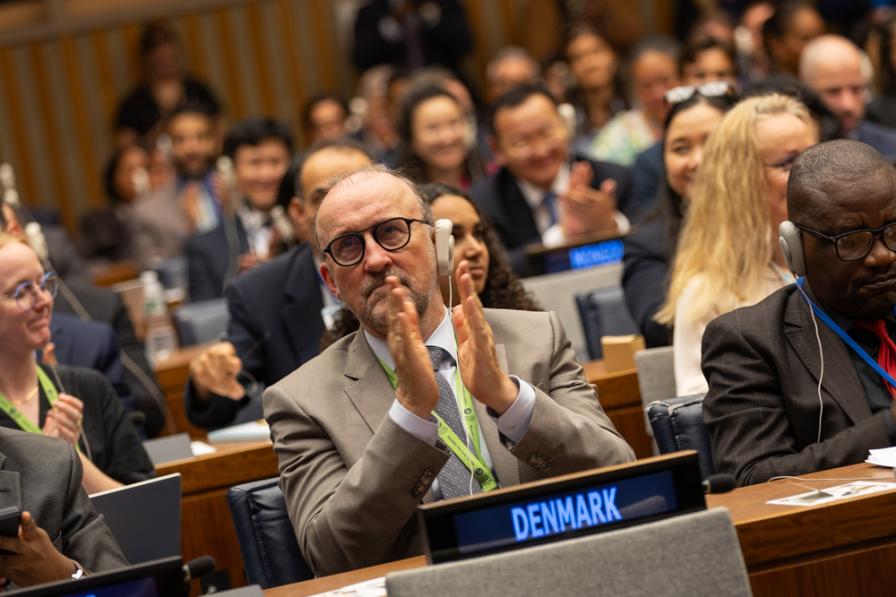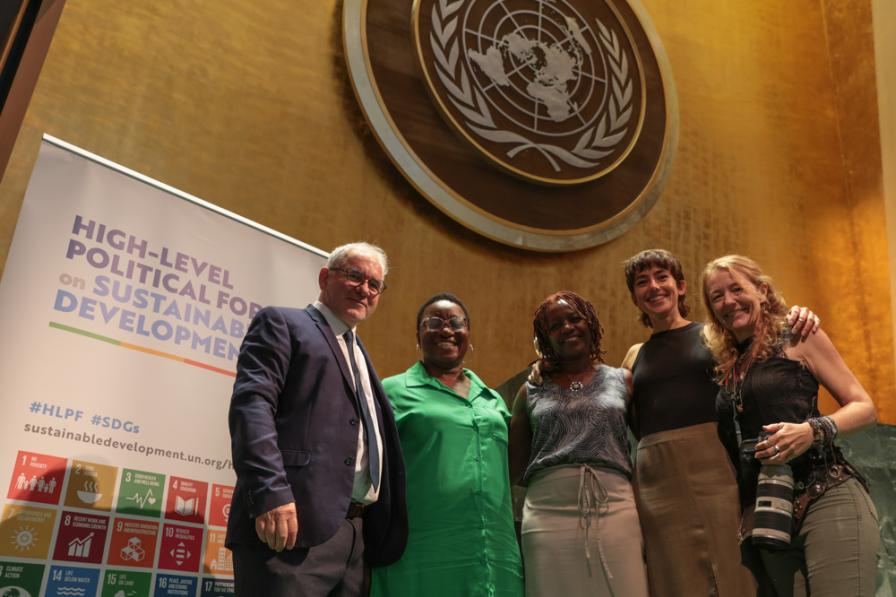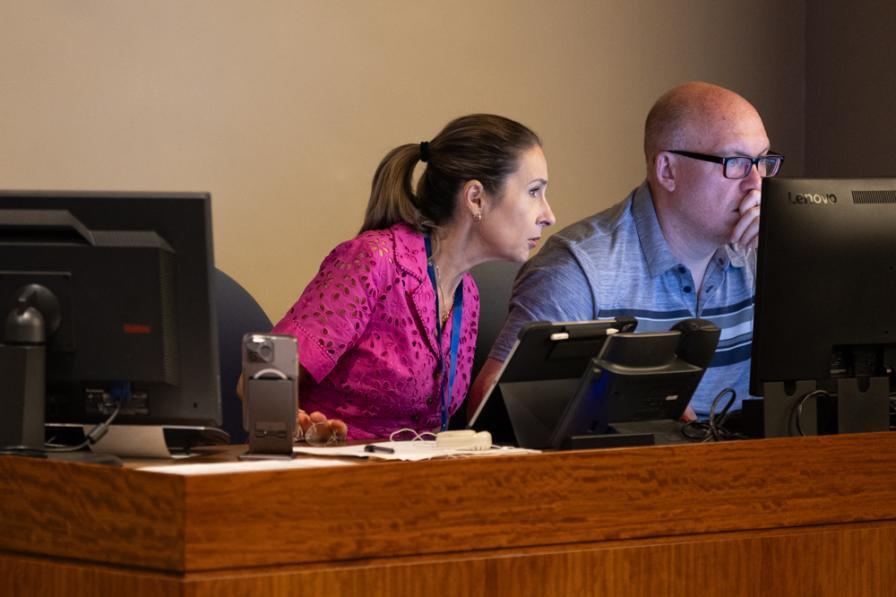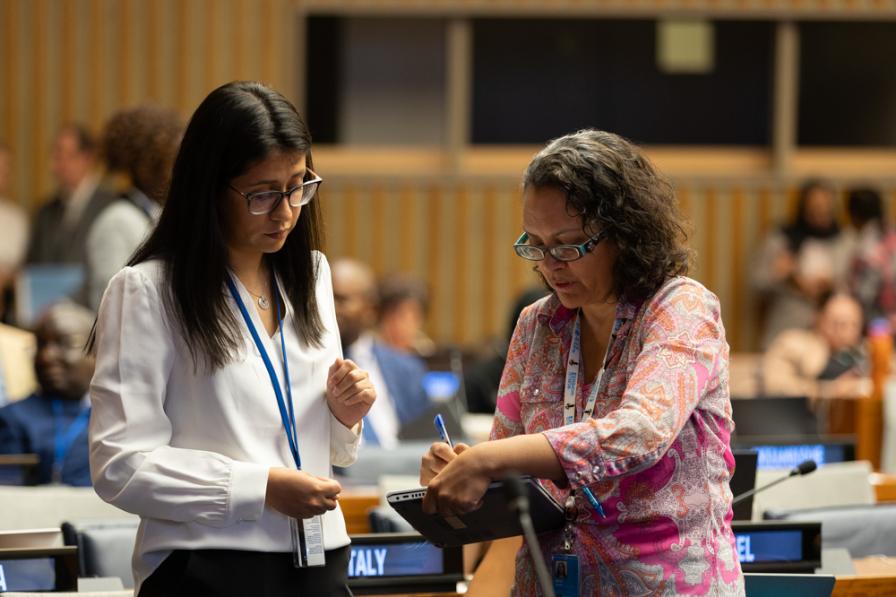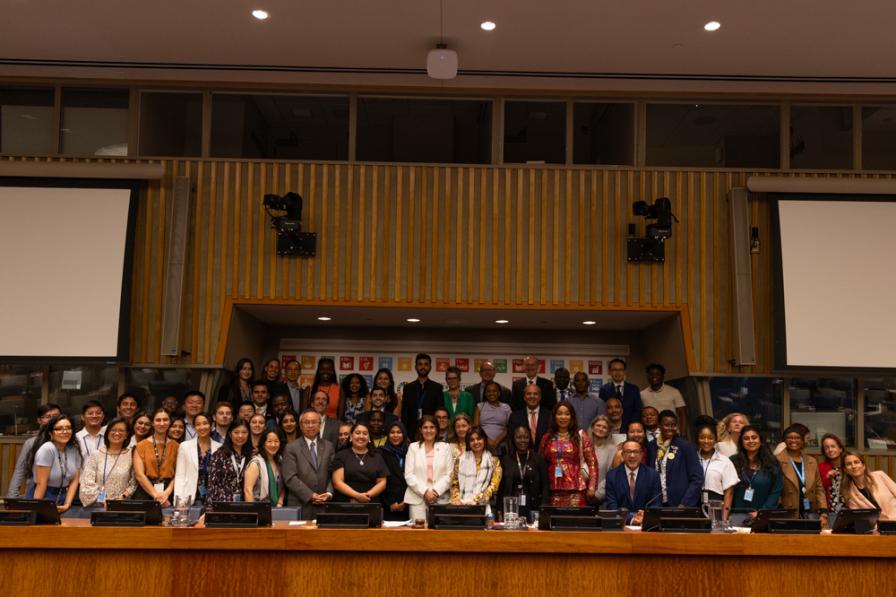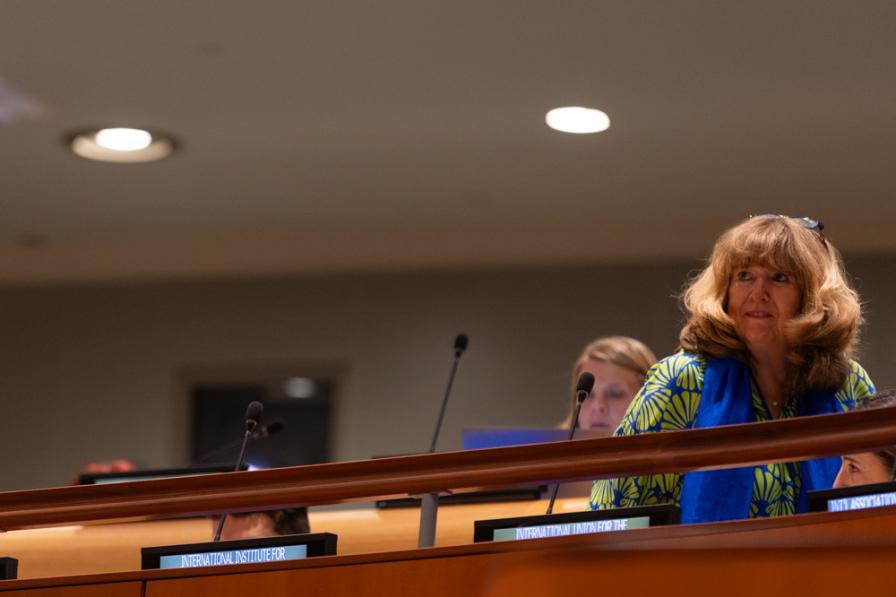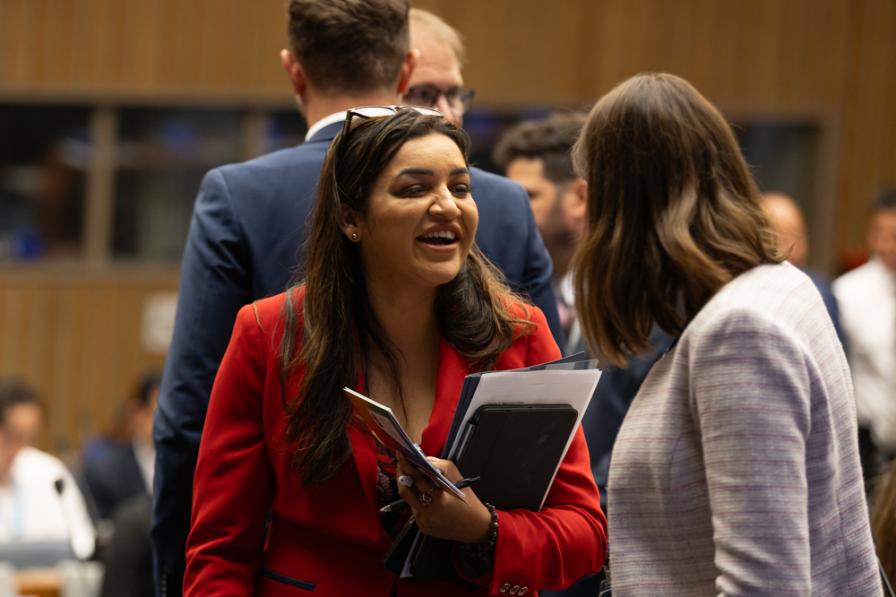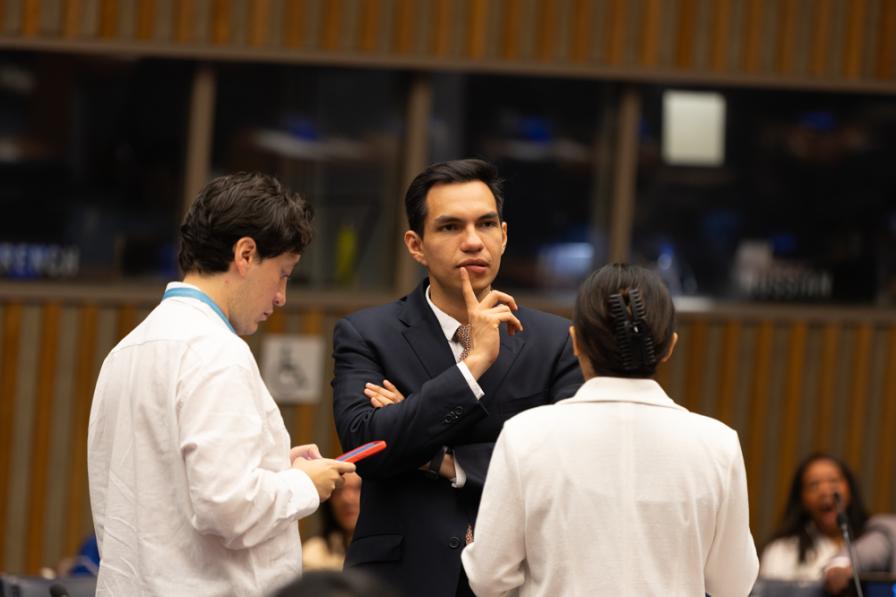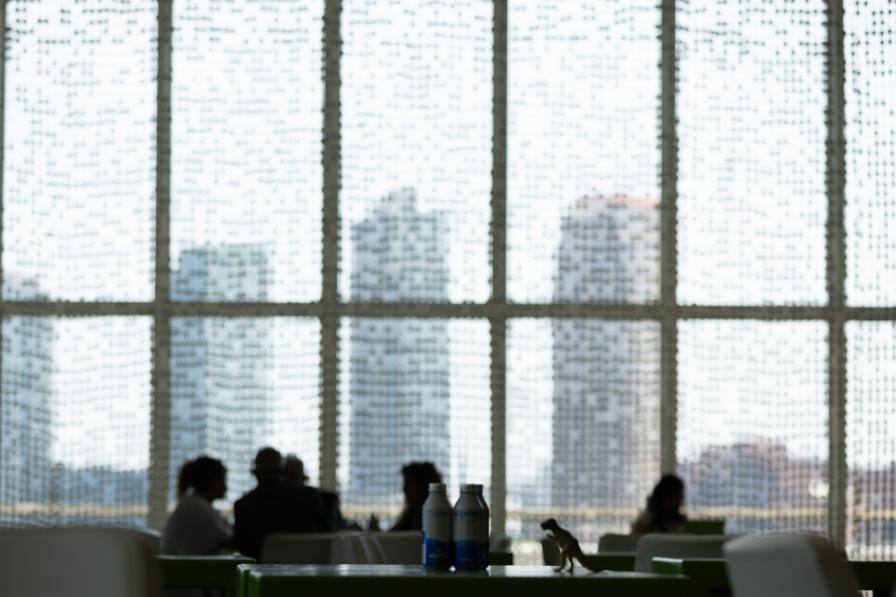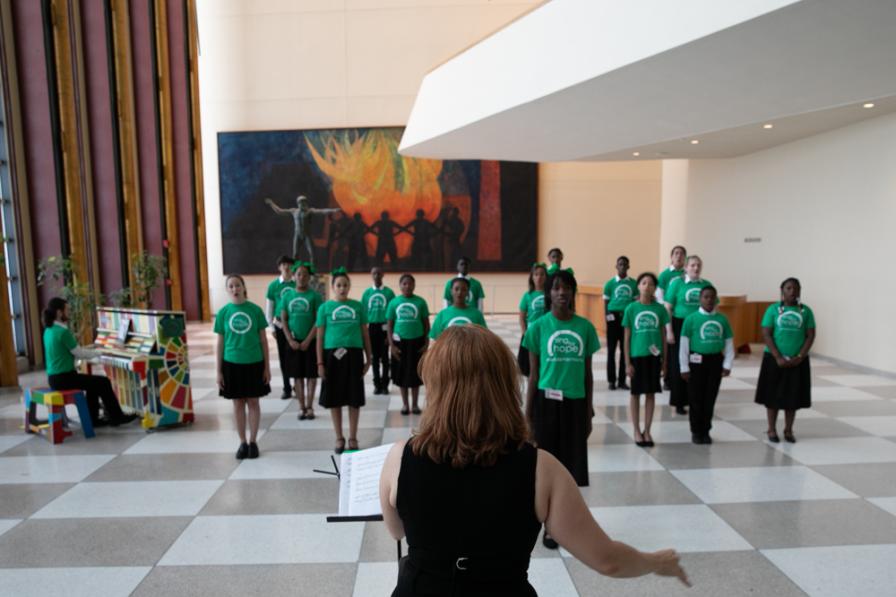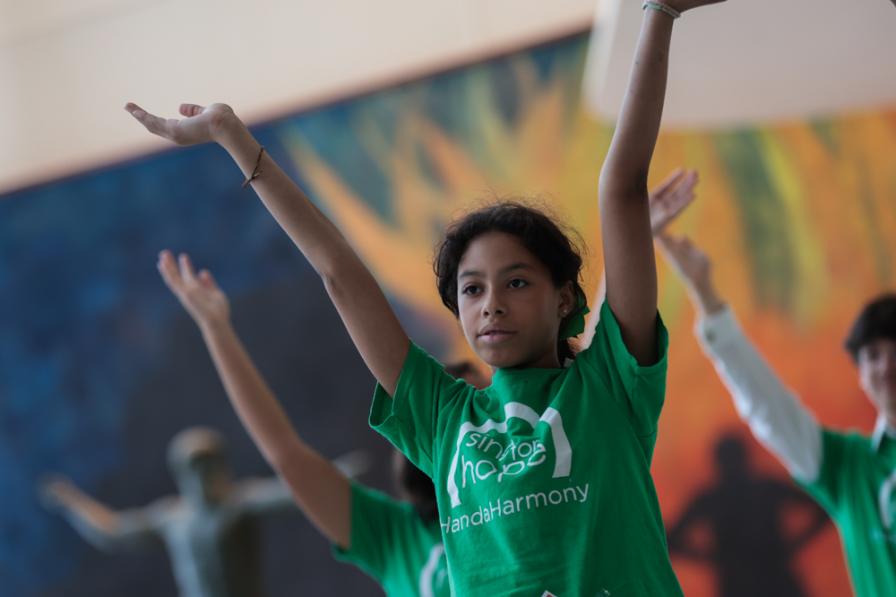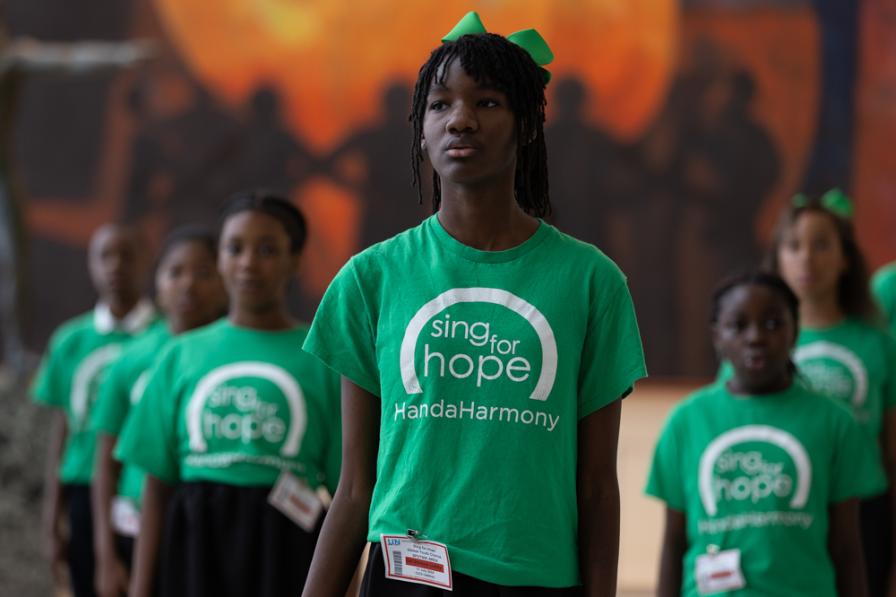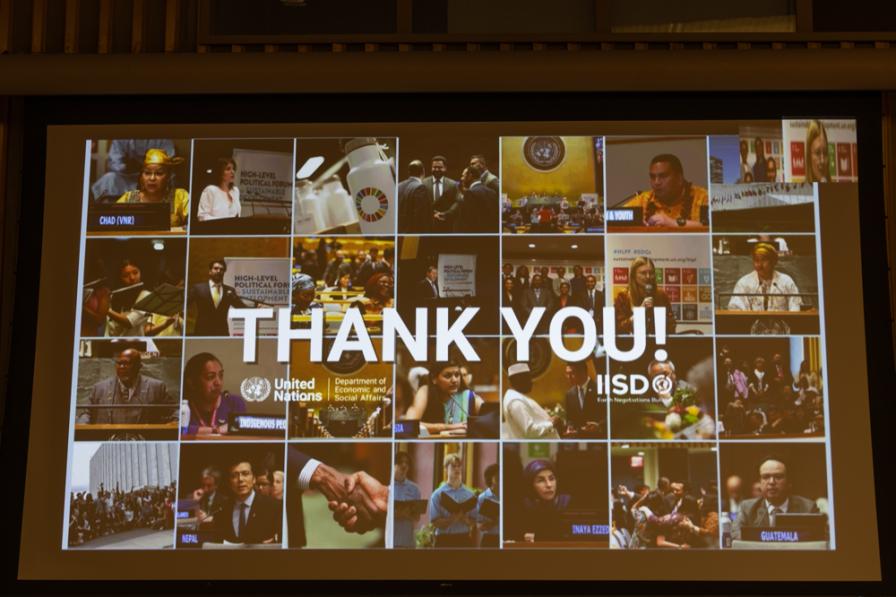“Are you listening?” On the last day of the 2024 High-level Political Forum on Sustainable Development (HLPF), the interconnectedness of the Sustainable Development Goals (SDGs) came full circle. During the first week, the Forum reviewed SDG 16 on peace, justice, and strong institutions. On Wednesday, delegates were challenged to uphold their commitments to rebuilding trust and “light the path ahead” towards a just and sustainable future. Many drove home a message of solidarity, emphasizing that crises have no borders, and “there can be no sustainable development without peace, and no peace without sustainable development.”
The general debate on the path from the 2023 SDG Summit towards the Summit of the Future continued, with 38 contributions by high-level government officials, and 31 by representatives of Major Groups and other Stakeholders.
Some suggested the Summit of the Future could be used to future proof the SDGs; send a strong political signal on the need for the reform of multilateral institutions, including those working on financing development; and contribute to a restoration of trust in the “broken” social contract. Others stressed that the draft Pact for the Future is not transformative enough, and called for scaled up action to meet the ambition of the SDGs.
The 2024 HLPF adopted a Ministerial Declaration following two votes: to include a last-minute addition on economic sanctions, or unilateral coercive measures; and to retain text recognizing the importance of peace and security to achieving the SDGs, including a call to uphold the right to self-determination of peoples living under colonial and foreign occupation. The Declaration identifies current challenges, and future actions and investment pathways to reinforce the 2030 Agenda and deliver on the SDGs.
The first vote related to an amendment introduced by Nicaragua on behalf of several other countries. He underlined the negative impacts of “unilateral coercive measures” on the sustainable development aspirations of developing countries, and urged the HLPF not to continue to overlook the realities of these impacts, such as lack of access to medicines and medical equipment.
The UK opposed the amendment, lamenting its late introduction and efforts to “cherry pick” from the 2030 Agenda. He stressed autonomous sanctions support the fundamental purposes of the UN Charter, and ensure compliance with human rights. The amendment was then put to a vote with 105 voting in favor, 11 voting against, and 46 abstaining. Following the vote, the EU and others dissociated themselves from the adopted amendment.
The second vote related to a paragraph in the draft Declaration for which the “silence procedure” had been broken. Uganda, representing the G-77/China, expressed disappointment in this call for a vote regarding the retention of a paragraph recognizing that sustainable development cannot be realized without peace and security, and that peace and security will be at risk without sustainable development. He explained that countries in conflict and those under occupation experience specific structural issues requiring targeted national support, state building, and sustainable development.
Israel noted that, in spite of the Co-Facilitators’ efforts, there had been no consensus on the draft paragraph and some countries had “insisted on placing narrow political considerations” ahead of a global consensus on the SDGs. In the vote, 122 delegations voted for, 2 voted against, and 39 abstained. The paragraph was retained in the Ministerial Declaration.
Throughout the day, ten countries presented their Voluntary National Reviews (VNRs). Austria, Equatorial Guinea, Mauritius, Congo, Oman, Brazil, and Vanuatu presented their second reviews; Ecuador and Namibia presented for the third time; and Mexico presented their fourth VNR report.
The presenters highlighted lessons learned since previous reports, and outlined successes and challenges in integrating civil society in sustainable development plans. Addressing the slow progress made in achieving the SDGs, one presenter encouraged Member States to think beyond the 2030 deadline: “The UN has given us a benchmark, but the sky is the limit for all of us.”
In closing statements, Li Junhua, Under-Secretary-General for Economic and Social Affairs of the UN, underlined that the SDGs continue to inspire, unite, and mobilize efforts worldwide, noting the 2030 Agenda remains the only blueprint to advance sustainable development. Paula Narváez, President, UN Economic and Social Council (ECOSOC), stressed the HLPF is fulfilling its mission to assess progress, share lessons learned, and discuss priorities. Noting HLPF 2024 has demonstrated it is not too late to make sustainable development a reality, she brought the Forum to a close at 6:10pm.
To receive free coverage of global environmental events delivered to your inbox, subscribe to the ENB Update newsletter.
All ENB photos are free to use with attribution. For HLPF 2024, please use: Photo by IISD/ENB | Kiara Worth.
General Debate: From the SDG Summit to the Summit of the Future
Closing of HLPF 2024
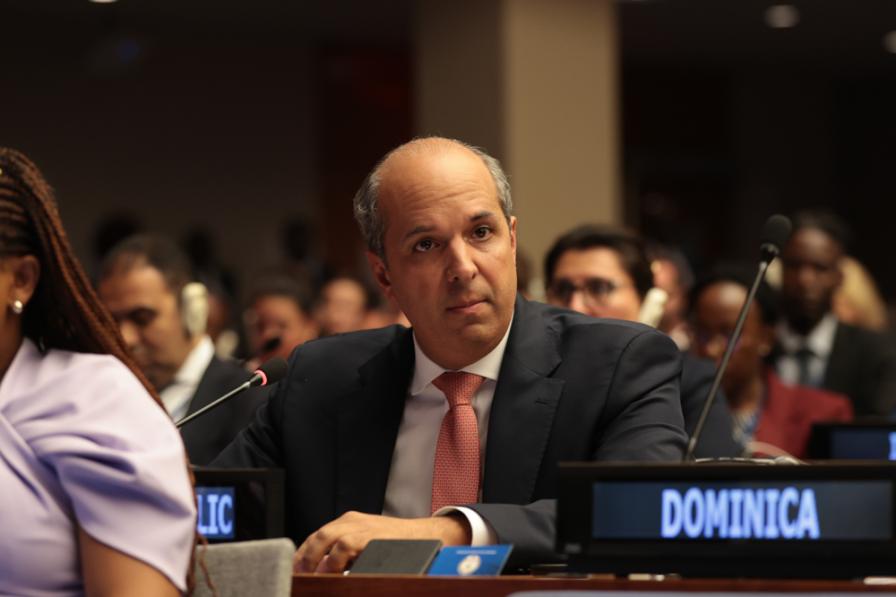
José Blanco, Permanent Representative of the Dominican Republic to the UN, and Co-Facilitator of the informal negotiations on the Ministerial Declaration
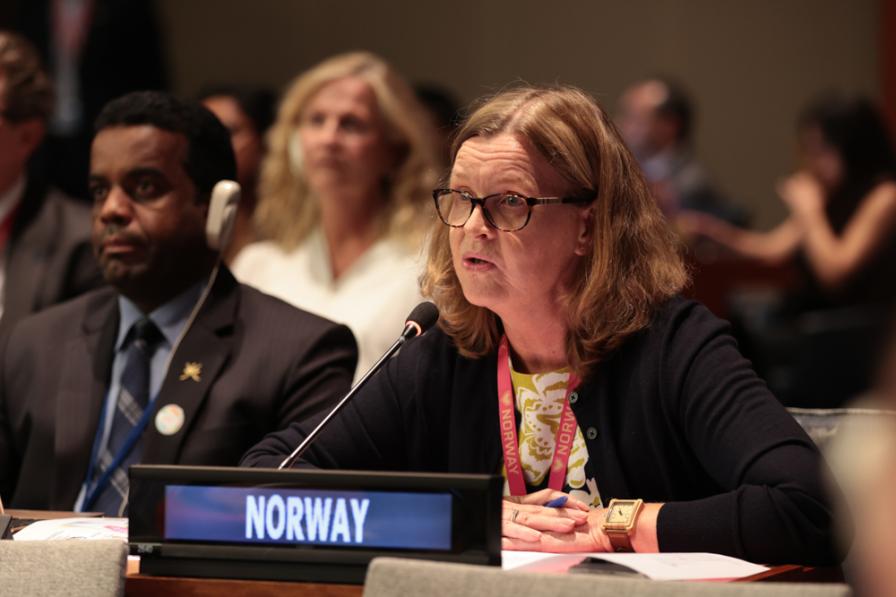
Merete Fjeld Brattested, Permanent Representative of Norway to the UN, and Co-Facilitator of the informal negotiations on the Ministerial Declaration
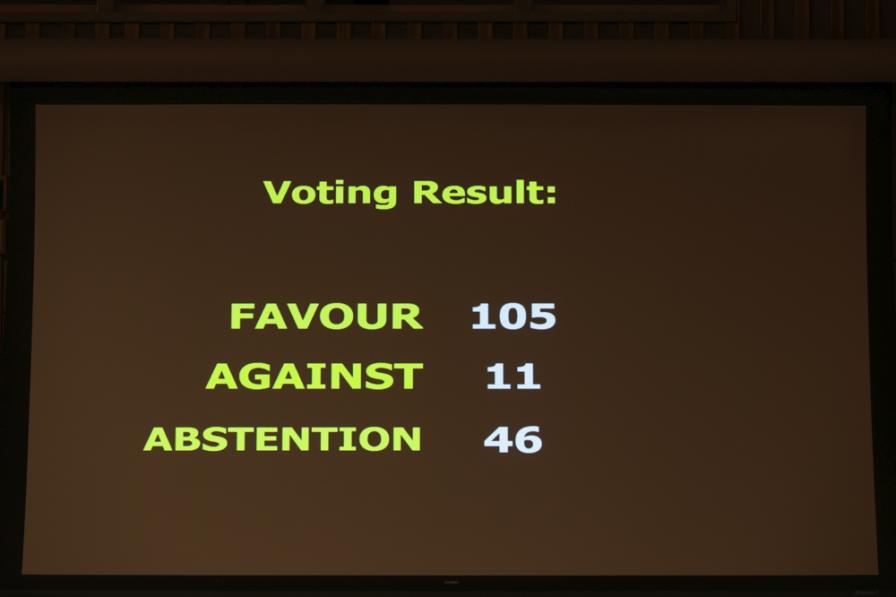
HLPF delegates vote on whether to adopt an amendment to the Ministerial Declaration to include a reference to the use of "unilateral coercive measures" (economic sanctions) against some member states

